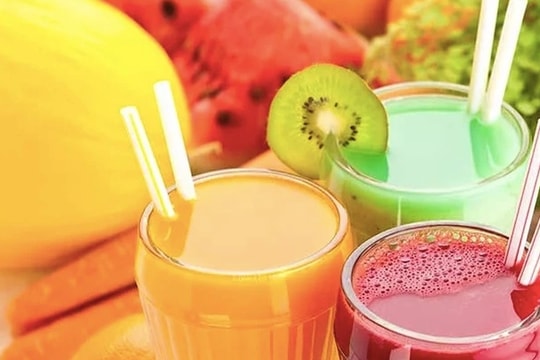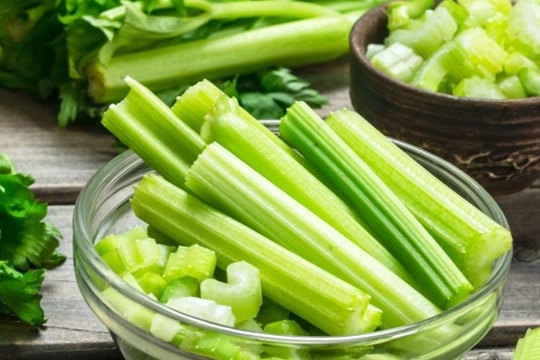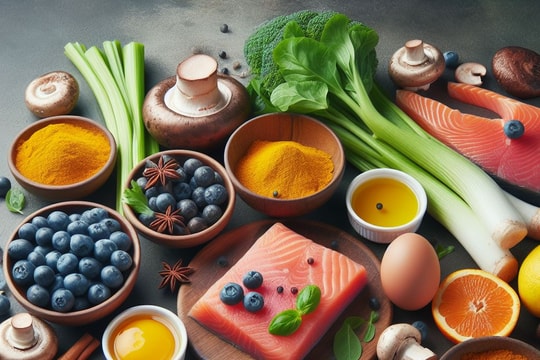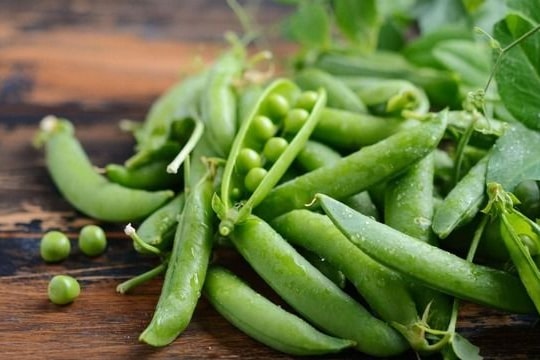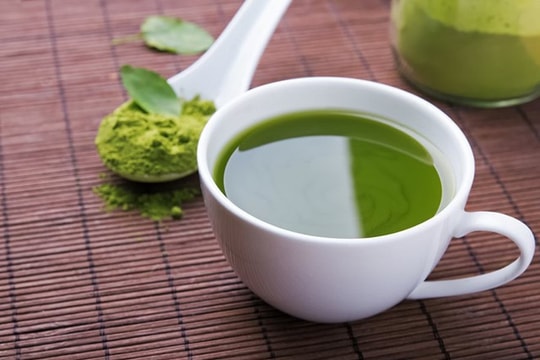Does eating guava cause constipation?
Guava is a popular fruit, affordable, brings many health benefits. However, because of fear of constipation, many people do not dare to eat it comfortably. So does eating guava actually cause constipation?
The difference between eating green guava and ripe guava
According to Nguyen Tri Phuong Hospital (HCMC), guava can cause constipation, bloating, and indigestion if you eat green guava. According to oriental medicine, its neutral nature, sweet and astringent taste, and astringent properties make guava capable of reducing secretions and intestinal motility, causing vasoconstriction, thereby causing constipation.
Not only that, the large amount of tannin in guava when entering the body also easily combines with proteins in other foods to create a membrane that tightens the mucosa, causing colon motility to slow down. Therefore, green guava helps stop diarrhea.
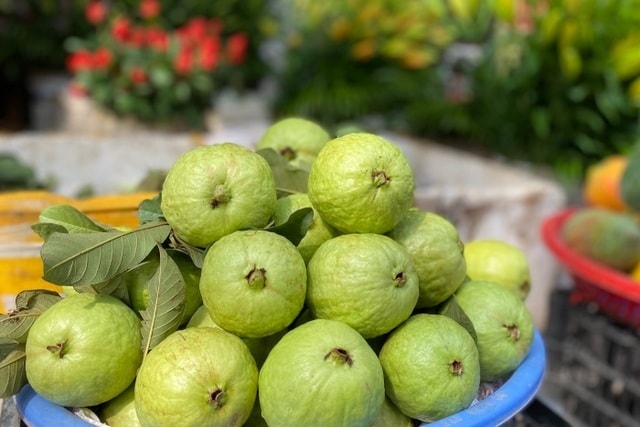
Both guava and guava leaves have many health benefits (Photo: NP).
However, when eating too much guava, intestinal activity can easily stagnate, thereby causing functional constipation.
Meanwhile, eating ripe guava does not cause constipation but is even beneficial for the digestive tract, helping with bowel movements.
Each ripe guava contains about 36% fiber and a very rich amount of vitamin C. On the other hand, ripe guava also contains many minerals, amino acids, and antioxidants that help soften stools, provide nutrients to the body, and enhance digestive function.
To avoid worrying that eating guava can lead to constipation, you can choose the following way of eating:
- Drink guava juice: Every day you can squeeze 4-5 fruits to get the juice or combine guava with some other green vegetables or fruits to squeeze the juice to help the body supplement minerals and vitamins. Drinking guava juice is much easier to absorb than eating it directly and significantly enhances laxatives.
- Guava smoothie: This drink provides both fluid to the colon and fiber to increase volume, making it easier to pass stool.
- Eat guava directly: To prevent indigestion and constipation, you can choose ripe guavas to eat directly. If the guava has too many seeds or the seeds are too hard, you can remove the seeds before eating.
Similarly, according to Vinmec General Hospital, to avoid constipation when eating guava and at the same time take full advantage of the nutritional value of this fruit, you should pay attention to the following issues:
- For ripe guava: Vitamin C is abundant in the peel, so you should know how to choose clean, delicious guava, soak and wash it properly to eat the whole peel to take full advantage of the vitamin C content in the guava.
- For children: Parents should not let their children eat too much guava, because this is not good for the immature digestive system, and can cause constipation or diarrhea.
- When eating ripe guava: If you notice there are too many seeds, you need to remove some, because guava seeds are very hard, so eating too much guava can cause constipation and indigestion, making the digestive process difficult.
- Although ripe guava is very good for your health and digestive system, you should only eat 1-2 fruits per day.
The health benefits of guava have been scientifically proven.
-Strengthen the immune system:Guava is one of the best foods that provide vitamin C.
Vitamin C is well known for its immune-boosting benefits. It helps prevent cell damage due to its antioxidant properties, which help prevent many diseases, including serious ones like heart disease, arthritis, and cancer.
-Regulates blood pressure: According to Dr. - Traditional Medicine Practitioner Phung Tuan Giang, President of the Vietnam Institute for Research and Development of Traditional Medicine, thanks to its high potassium content, some studies show that guava can help reduce blood pressure and blood lipids naturally.
Potassium is important for keeping the heart healthy and plays a key role in regulating blood pressure levels.
-Great source of fiber:Guava is one of the best fiber-rich foods available. Not only that, it also contains edible seeds that are high in fiber.
-Rich in antioxidants: Research shows that guava is rich in antioxidants. Antioxidants are powerful compounds that can neutralize free radicals to protect against cell damage and chronic disease.
-Fight against cancer cell growth: Lycopene is a powerful antioxidant found in abundance in guava, especially the pink-fleshed guava. It has been shown to be an anti-cancer agent due to its ability to inhibit the growth of many types of cancer cells.

